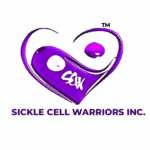California Warriors, Call to Action: Get SCD Funded in the State
Budgets are being formed for the coming fiscal year in Washington next week and we need to take action. We’ve just learned that both the House and the Senate are considering including funding for CDC’s SCDC (surveillance) program, which has not been funded by Congressional budget in the past (although the legislation for the program is passed and signed), and for HRSA’s SCD Treatment Demonstration Project, which needs to continue (at full requested funding).
Please take action and a brief moment in the next few days to let California members of the Appropriations and Budgets committees know your experience with these programs and whether you support funding them. Those of us involved in SCD surveillance are surprised and pleased that Congress is considering funding, and want to support the committees in moving forward.
Template Letter
The attached template letter is from the American Society of Hematology, and you can adapt and send. Or just send an email, or call. Everyone living in California is a constituent of Sen. Feinstein, and I urge those in Reps. Roybal-Allard and Lee’s districts to take action by contacting them or their staff as well. Please spread the word to the people you work with, family, and friends.
Sen. Dianne Feinstein: Andrew Fuentes, Legislative Asst., Health: Andrew_fuentes@feinstein.senate.gov
Rep. Lucille Roybal-Allard (40th, Los Angeles): Debbie Jessup, Health Advisor – Public Policy: Debbie.Jessup@mail.house.gov
Rep. Barbara Lee (12th, Alameda County): Diala Jadallah, Sr. Policy Analyst: Diala.Jadallah@mail.house.gov
Template Letter
Subject: Senate and House Support Needed for Sickle Cell Programs at CDC and HRSA
Dear BLANK,
As a constituent and <describe your role> for individuals with sickle cell disease (SCD) at BLANK institution, I am seeking your support for funding in the FY 2021 Labor Health and Human Services Appropriations Bill of two important public health programs to improve access to care for individuals living with Sickle Cell Disease (SCD)
-
Sickle Cell Disease (SCD) Treatment Demonstration Regional Collaborative Program at the Health Resources and Services Administration (HRSA). ($5.2 Million requested)
-
Sickle Cell Disease (SCD) Data Collection Program at the Centers for Disease Control and Prevention (CDC) ($5 Million requested)
(Use this paragraph to explain who you are and the services you provide to SCD patients. If you are a Director of an SCD center – where is the center located, how many patients seen, adults vs. peds or both. Because if you do outreach throughout the state provide that information as well. Identify your role in the HRSA program – are you a regional grantee or do you receive grant funds?)
HRSA’s SCD Treatment Demonstration Regional Collaborative Program
The HRSA SCD Regional Collaborative focuses on enhancing access to comprehensive, state of the art SCD care for patients living with the disease by providing educational programs and assistance to providers to assure that patients have access to the most current treatments and advances in SCD care. Once the grant program brings together both primary care providers and hematologists, who specialize in the disease. For example, my region, funds have been used for: Provide a highlight of the program in your region.
CDC’s SCD Data Collection Program
The data collection program is a population-based surveillance system, because it collects and analyzes longitudinal data on people living in the U.S. with SCD. Most importantly, due to limited funding, implementation of the program has occurred only in two states over the past few years– California and Georgia (approximately 10% of the U.S. SCD population). However, it is critically important that this program and action be expanded throughout the country to provide needed information on this patient population to determine how best to meet patient needs.
Planning Grants & Action
In addition, seven states have received planning grants to undertake surveillance. Once implemented data will be collected from multiple sources (newborn screening programs, Medicaid, hospital discharge data, emergency department data, vital records, and clinical data. The program is valuable because it can follow individuals over time across healthcare systems and create individual profiles of how they accessed healthcare and their outcomes.
For your reference, after that I have attached a fact sheet and infographic on SCD. In sum, ff you have any questions, or if you need any additional information, please reach out to me.
Therefore, thank you for your consideration of this request. Overall, I look forward to working with you to address the needs of this vulnerable group of patients.
